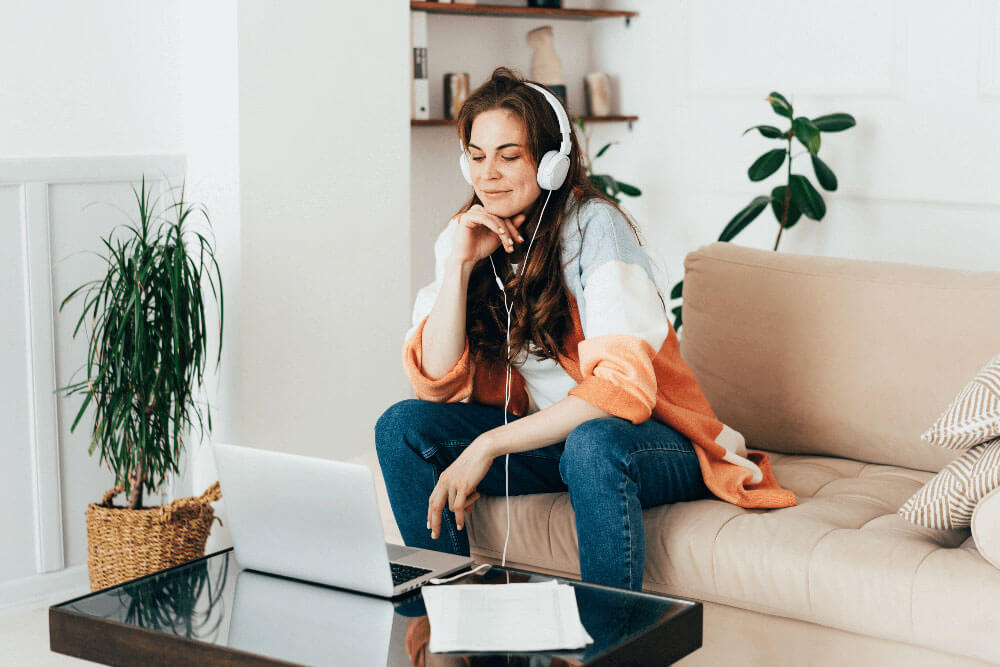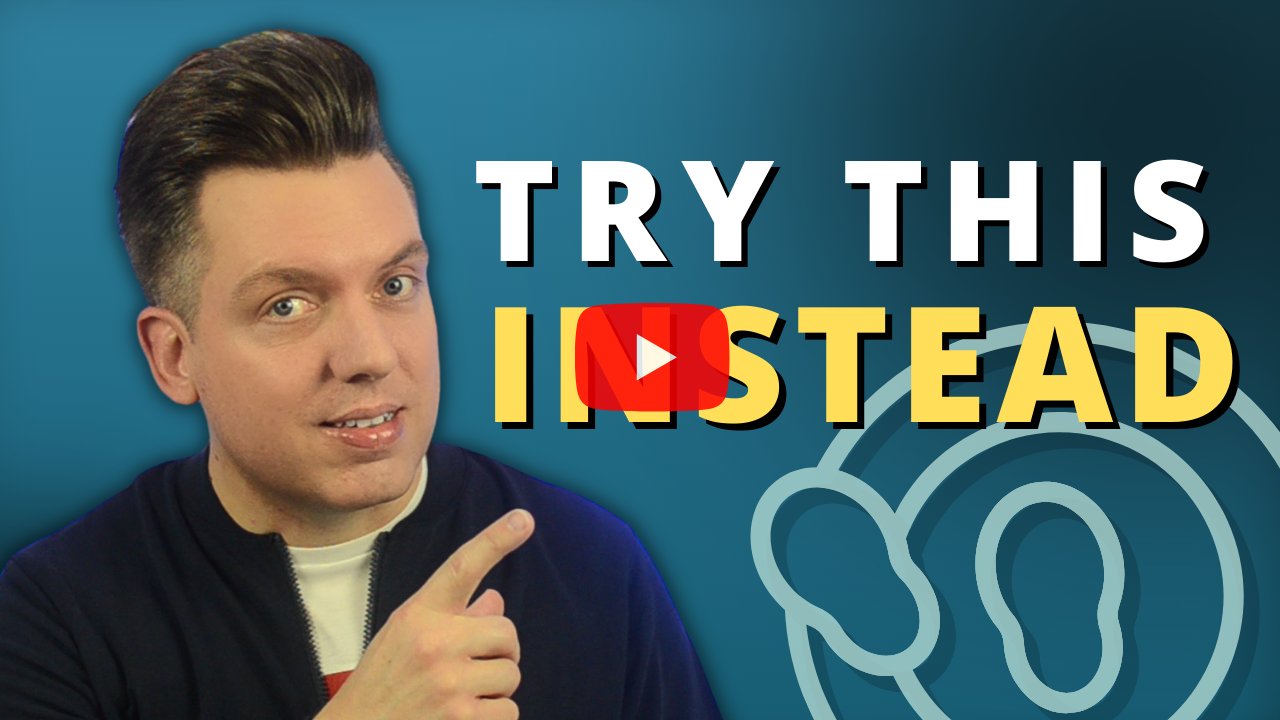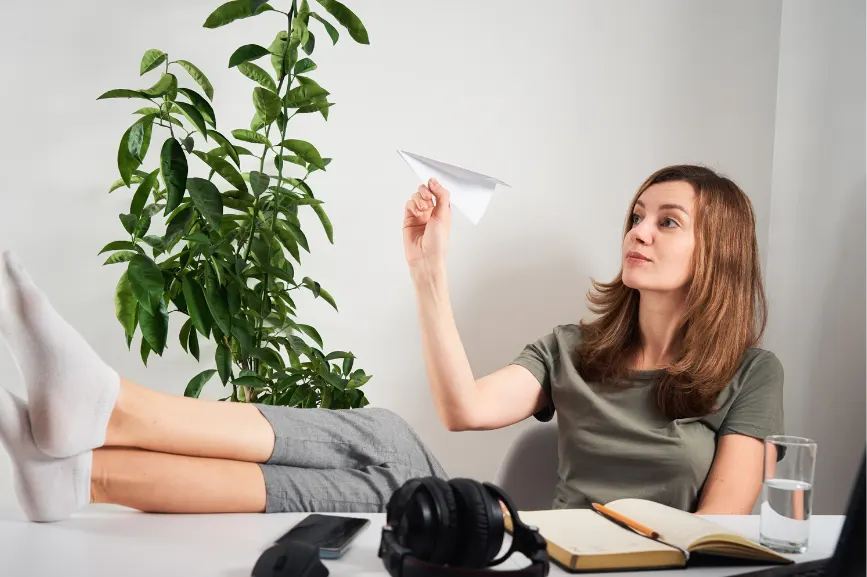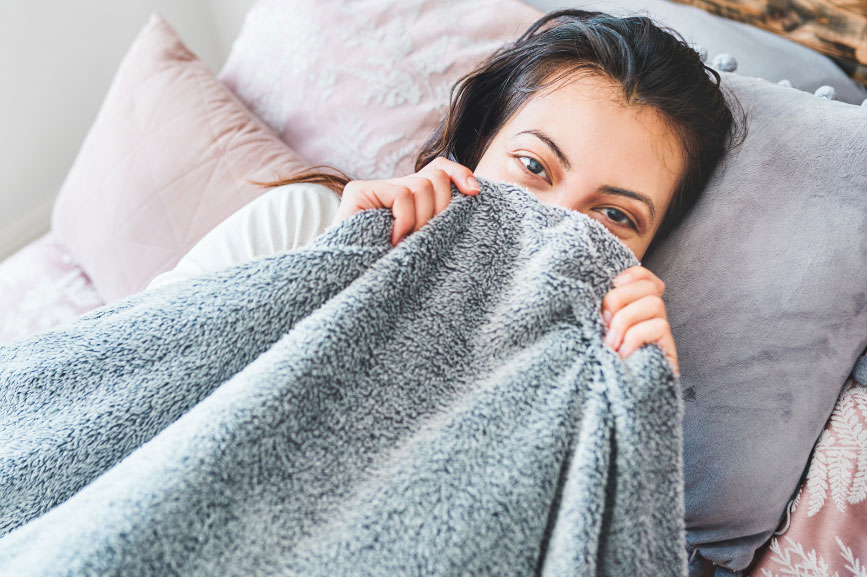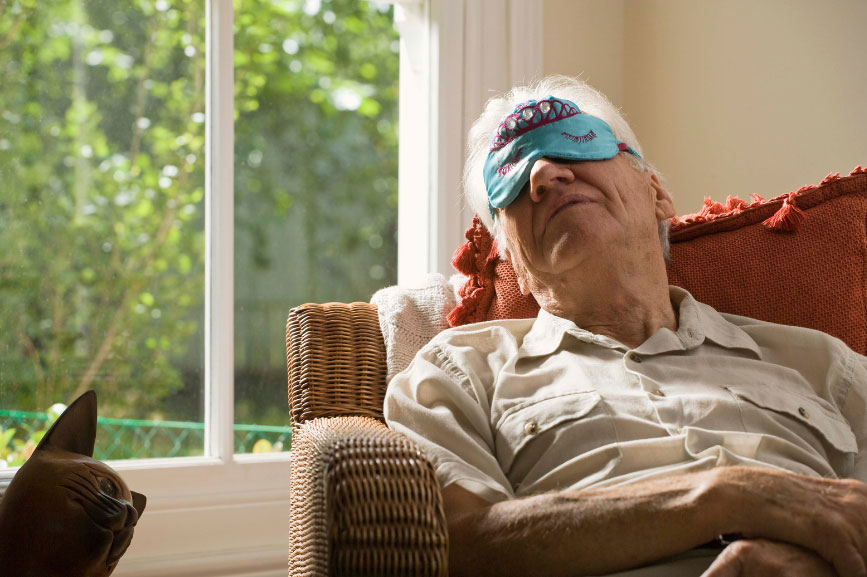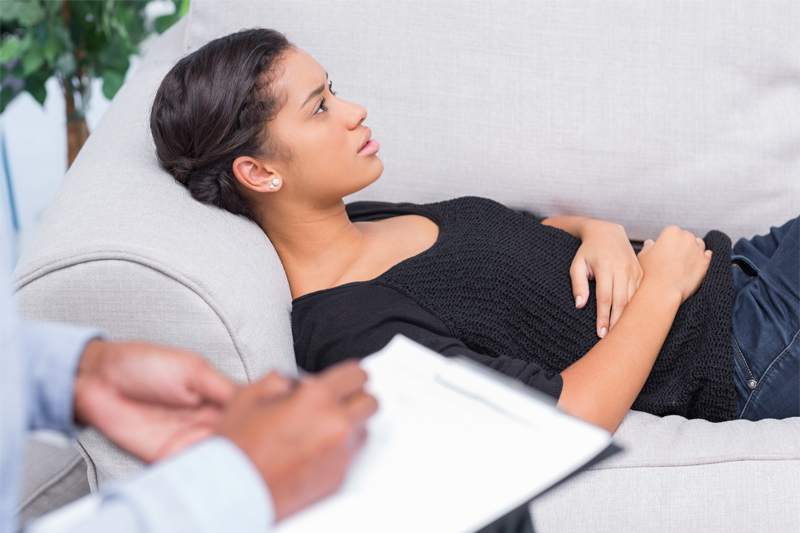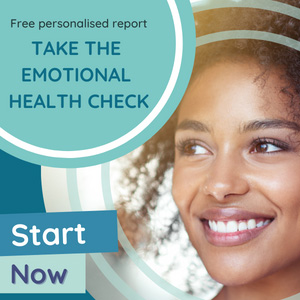Stress and anxiety are very real emotions for all of us and when we feel anxious about something the most natural thing to do is to try and avoid it, because when we avoid the things we fear, we get some relief and feel calmer. But the problem is, when we avoid the things we fear, we're unwittingly making our anxiety worse.
In this article, we'll explore the habits that make anxiety worse, why they happen and what you can do to start breaking the cycle of anxiety and fear so you begin to build the courage and confidence to do more of the things you used to avoid.
Why does avoidance make anxiety worse?
Every decision you make, and every action you take, your brain is always learning! And each experience, whether it's a positive or negative one, your brain stores each experience as evidence to keep you safe in the future. So, when you avoid things that you worry about or fear, your brain never collects the evidence in your mind that you can actually survive in those situations. And that's why just telling yourself something is safe, isn't enough. Your brain needs to actually experience it to collect the evidence that is it safe.
This all happens in the primitive survival structures of your brain; in the amygdala, hippocampus, and hypothalamus. It's these parts of the brain, that helped the human species thrive when being fearful and anxious ensured our survival.
And so, if we avoid situations that make us anxious, our brain learns that avoidance equals safety. You may feel safe in that moment and gain some short term relief, but your brain actually is cementing the idea that these situation are, indeed, dangerous and so it becomes a cycle of negative reinforcement, a loop that keeps anxiety alive and makes it worse over time.
So, if you want to break the anxiety cycle, it's not just about telling your brain it's safe. You need to show your brain it's safe, in a gradually way.
At the end of this article, you'll also learn about 4 skills that you can use to sit with anxiety which can help you reduce it over time too, as you show your brain gradually it's safe to challenge yourself. Let's begin by looking at 5 habits that make your anxiety worse.
Watch my video, 5 Habits That Make Your Anxiety Worse
I explain what these habits are, why they happen and what you can do to build the courage and confidence to do more of the things you used to avoid.
5 habits that make anxiety worse
1. Avoidance
Avoidance comes in many forms, it might be that invitation your decline or that delivery you opt for rather than having to go into the store, so you can avoid those anxious feelings. You might gain some relief because you have not put yourself in that distressing situation. But, in the long term you may become even more unwilling to confront anxiety and your worry or fears grow. When the day eventually comes and you need to face going to the store again, it can be completely overwhelming.
So, the thing to remember here, avoidance leads to short-term relief but longer-term anxiety. If you're willing to experience and welcome the things you avoid it leads to short-term anxiety and long-term confidence.
2. Escape
When avoidance isn't possible when anxiety hits you, you might choose to escape the situation as a means of minimising or dealing with your feelings. Escape involves leaving or escaping from a feared situation, like social events, public speaking, and supermarkets etc. You just get the urge to get out there quickly.
But remember, learning to tolerate and cope with those anxious feelings and gradually increasing your experience of them over time helps confirm to your mind that you can survive, and you will feel more at ease.
3. Negative Thinking
When you worry about events and situations in your life, you might play out the worst-case scenarios in your mind. For example, if you're asked to give a presentation at work, or there is a social gathering looming, you might begin to worry about everything that could go wrong, and you might start to rehearse all the problems and dreadful scenarios that could happen in your feared situation! You worry.
When you worry, it's often because it might mistakenly help you feel in control perhaps by imagining all the things which could go wrong, because it feels like problem solving. It can be easy to rationalise it but in reality, it makes you more anxious and you don't actually fix anything. And because it feels good in that moment your emotional mind encourages you to do more of it because it always refers back to previous patterns of behaviour that it thinks is useful in that moment, even if it makes you more anxious and hyper vigilant.
So, if you want to feel less anxious, learn to control your worry (not your anxiety) and recognise that you have the choice to elaborate on your worries or imagine the worse. Observing your worries as passing thoughts rather than absolute truths. Label them with phrases like "I'm having the thought that..." it just helps you create some distance from worries which reduced the impact on your feelings so you can look for more balanced perspectives and rational ways to solve your challenges.
4. Isolation
If you allow your worries to take hold, especially leading up to something you've been fearful of in the past or avoided, it really engages that subconscious part of your mind that will keep you stuck and fearful. It's a common thing that comes up in the therapy room, clients often choose to avoid things and isolate themselves away from colleagues, friends or even family is an effort to feel safe. Again, this gives some temporary relief, but it's simply confirming to your subconscious mind that this is a helpful behaviour in that situation, and so when anxiety levels rise and you begin to worry again, this will be the default behaviour you'll be encouraged to do to feel safe. Rather than challenging yourself, showing your brain that you can do these things, even in a small way, this withdrawal can mean more isolation, fewer social interactions, and more anxiety when you next need to engage with people, which leaves you stuck an isolation loop.
It's quite common that when people challenge themselves to do the thing they were avoiding, they actually prove their brains wrong and often enjoyed it instead. A lot of the fears and worries we have before an event, never materialise. Social connections and interactions with people we enjoy, gives us a boost, because positive social interactions, even brief ones, can lead to the release of neurotransmitters like serotonin and dopamine, and that contributes to feelings of happiness and well-being, and this too can helps you break the cycle of isolation as a coping strategy when you're feeling anxious.
5. Comfort Eating
Some people find coping strategies like eating comfort foods such as chocolate or junk foods give them a quick bit of relief, because eating releases dopamine which is a brain chemical that makes us feel good and can temporarily counteract feelings or anxiety or stress. Therefore, some people learn use food to soothe negative or challenging emotions because they believe it's making them feel better. However, it can make anxiety worse longer term as a result because your brain's reward system is designed to reinforce behaviours that are perceived as rewarding and you'll be encouraged to repeat these behaviours in the future to experience the same relief when low mood or anxiety rises again.
One helpful step here is to Identify your triggers and ask yourself, what situations or feelings get you thinking about food? When you feel like reaching for something, stop. Try to figure out what sparked that urge and write it down. When you understand that, you can begin to make some changes. Perhaps, ask yourself, what are some alternatives to food that will help you feel better. What self-care activities that would help you feel better instead? This all helps provide your mind and body with some positive kindness and self-care, which boosts your positive neurotransmitters naturally.
So, in conclusion, if you want to feel less anxious about something, challenge yourself to do it as often as you can, and when you use skills that help you sit with anxiety, they can help you reduce anxious or fearful feelings over time, as you challenge yourself and teach your brian, you can do it.
Here are 4 techniques that you can use daily to help you reduce anxiety
- Write down the good things every day. Ask yourself, 'what's been good today', and write down 3 or 4 things that you've noticed. They don't need to be big things, just positive! This helps to strengthen your ability to see the good in every situation.
- Breathe - practice deep breathing in through the nose and out through the mouth, several times per day, this helps engage your parasympathetic nervous system, calming your mind and body down.
- Challenge your negative thoughts - Get into the habit of looking for the evidence for those negative thoughts, how likely is the outcome that you're worrying about? Practice replacing the negative outcome with a more neutral or positive one and look for the positive in every situation.
- Don't avoid things - challenge yourself gradually and do it as often as you can. Because when you learn to face the things that make you fearful, you expand your comfort zone gradually and become stronger and braver.
In my hypnotherapy practice online, I use Solution Focused talking therapy combined with hypnosis, to help you reduce and overcome anxiety as we move forward. We talk and explore your preferred future when you are free of anxiety and consolidate the sessions with hypnosis providing positive suggestions for your subconscious mind for positive change. If you'd like some support to help you overcome your anxiety, I would love to help. Start by getting in touch to book a free initial chat so that we can explore your situation, provide some advice, and explore what your personalised hypnotherapy program might look like.
Can hypnotherapy help anxiety disorders?
Yes, hypnotherapy is a versatile approach for treating various anxiety disorders, including generalised anxiety disorder, panic disorder, health anxiety, social anxiety, agoraphobia, panic attacks, specific phobias, and obsessive-compulsive disorder (OCD). Hypnosis helps you engage your relaxation response, creating a new sense of calmness and inner peace. Additionally, hypnosis involves providing positive suggestions directly to your subconscious mind as your relax, which helps to reframe negative thought patterns and behaviours. This process encourages the adoption of healthier cognitive patterns, leading to positive changes in thoughts, emotions, and behaviours over time.
How does solution-focused hypnotherapy differ from traditional therapy for anxiety?
Solution-focused hypnotherapy differs from traditional therapy approaches in its focus on identifying and amplifying solutions rather than dwelling on problems. While traditional therapy may involve exploring past traumas or negative patterns, solution-focused hypnotherapy emphasises your strengths, resources, and goals for the future. By harnessing the power of the subconscious mind through hypnosis techniques, solution-focused hypnotherapy can help you create positive change more rapidly and effectively.
Can solution-focused hypnotherapy help with insomnia related to anxiety?
Yes, solution-focused hypnotherapy can be beneficial for addressing insomnia and sleep disturbances associated with anxiety. By inducing a state of deep relaxation and promoting positive suggestions related to sleep hygiene and stress reduction, hypnotherapy can help you overcome insomnia and improve the quality and duration of your sleep. Additionally, solution-focused hypnotherapy techniques help you develop healthier sleep habits and coping strategies for managing anxiety-related sleep difficulties.
Is hypnosis safe for treating anxiety?
Yes, hypnosis is generally considered safe when conducted by a trained and qualified hypnotherapist. During hypnosis, you remain in control and can choose to terminate the session at any time. Contrary to popular misconceptions, hypnosis does not involve loss of consciousness or surrendering control to the hypnotherapist. Instead, the process creates a deep state of deep relaxation and heightened focus, allowing for enhanced receptivity to positive suggestions and therapeutic interventions. However, it's essential to work with a reputable hypnotherapist who adheres to ethical guidelines and prioritises your safety and well-being. I've created a list of questions you can ask any potential therapist during your initial enquiries to get a good understanding of their training and experience.
If you're interested in exploring the potential benefits of hypnotherapy, feel free to reach out. A complimentary initial chat is offered to discuss your situation and outline a personalised hypnotherapy program tailored to your needs.


